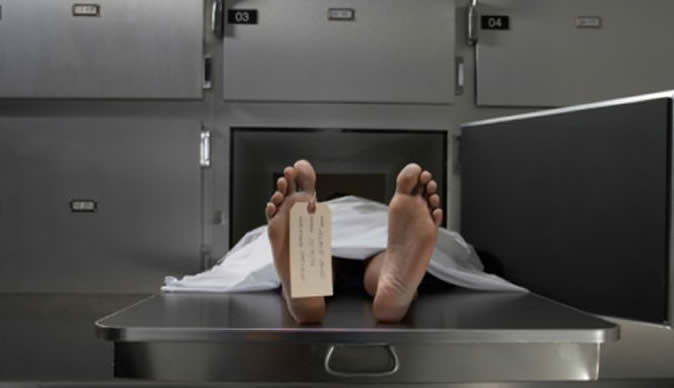Who really cares about the psychological well-being of morticians?

By Amos Kateta
They handle dead bodies, store them in cold rooms, clean them, prepare them for autopsies as well as embalming and handing them over to the deceased’s relatives. It seems like a walk in the park but who really cares about the psychological well-being of morticians at our central hospitals?
Most of them prefer to remain anonymous due to the stigma that people associate with this profession. In Zimbabwe, accusations levelled against morticians of selling used water that remains after cleaning a dead body have made the situation worse. But who really cares about their psychological well-being?
It is recognised that morticians are subjected to significant pressures, which may result in psychological problems. Morticians are exposed to death and grief on a regular basis and this can have a significant impact in terms of their cognitive abilities, emotions as well as conduct or behaviour.
A study published in the Journal of Occupational Health Psychology in 2009, surveyed morticians in the United States and found that they experienced a range of psychological symptoms, including depression, anxiety, and post-traumatic stress disorder (ptsd). The study also found that the level of exposure to death and grief was a significant predictor of psychological symptoms.
The work environment for morticians exposes them to several work-related dangers including chemical hazards (from chemicals used for embalming), physical strains (from the lifting of heavy corpses), biological hazards from body fluids if appropriate Personal Protective Equipment is not used, work-related psychological stress (unpleasant smells from portions of bodies that may have been burned, putrefied or fragmented), fractures or dislocations.
Another study, published in the Journal of Death and Dying in 2018, interviewed morticians in the United Kingdom and found that they experienced a range of emotional responses, including empathy, sadness, and a sense of responsibility towards the deceased and their families. In Sub Sahara Africa, A study carried out in Ghana, shows that those doing this type of work have not been prepared psychologically for the tasks and the on-job training they do does not take into account psychological well-being of an individual which is critical in this line of work.
In Zimbabwe, no study has yet been carried to explore these psychological effects. There is no baseline data that is available regards psychological effects of handling dead bodies by morticians.
It is therefore important for morticians to recognise the following potential psychological issues and seek help if needed;
- Morticians are often exposed to the emotional pain and trauma of grieving families. This can lead to compassion fatigue, which is a form of burnout that occurs when a person experiences prolonged exposure to the suffering of others.
- Dealing with traumatic deaths as a result of accidents, suicides and homicides. can lead to PTSD, which is a psychiatric disorder that can develop in people who have experienced or witnessed a traumatic event.
- Morticians may experience depression due to the emotional toll of their work. They may also be at risk of depression due to the long hours and isolation that can be associated with the profession.
- Morticians may experience anxiety due to the high level of responsibility associated with their work. They may also experience anxiety due to the need to manage complex funeral arrangements and deal with grieving families.
- Morticians may be at risk of substance abuse due to the stress and emotional pain associated with their work. There is actually a belief in Zimbabwe that people who work in mortuaries will either be high on drugs or they get some form of injection or pills that makes them lose the psychological faculty of emotion.
The following are possible ways that psychological support can be provided to morticians to help them cope with the demands of their job that I strongly recommend as an Intern Counselling Psychologist;
- Counseling or therapy: Morticians can benefit from talking to a mental health professional about the emotional challenges they face in their work. Counseling can help them develop coping strategies, process their emotions, and manage stress.
- Peer support: Morticians can benefit from connecting with other professionals in their field to share experiences and support each other. Peer support groups or networking events can provide a space for morticians to talk about their work and find common ground.
- Self-care: Morticians can benefit from prioritizing self-care activities to help manage stress and maintain their well-being. This can include exercise, meditation, hobbies, and spending time with loved ones.
- Education and training: Morticians can benefit from education and training on topics such as grief and loss, communication skills, and self-care. This can help them develop the skills and knowledge needed to perform their job effectively while also managing the emotional demands of their work.
It’s important to note that psychological support should be tailored to the individual needs of each mortician. Some may find counseling or therapy helpful, while others may prefer peer support or self-care activities. Employers can play a role in supporting their employees by providing access to resources and training opportunities to help morticians cope with the demands of their job.
Overall, Morticians play critical role and giving great consideration to their psychological well being can never be over emphasized.
Amos Kateta is an Intern Counselling Psychologist, Great Zimbabwe University.






